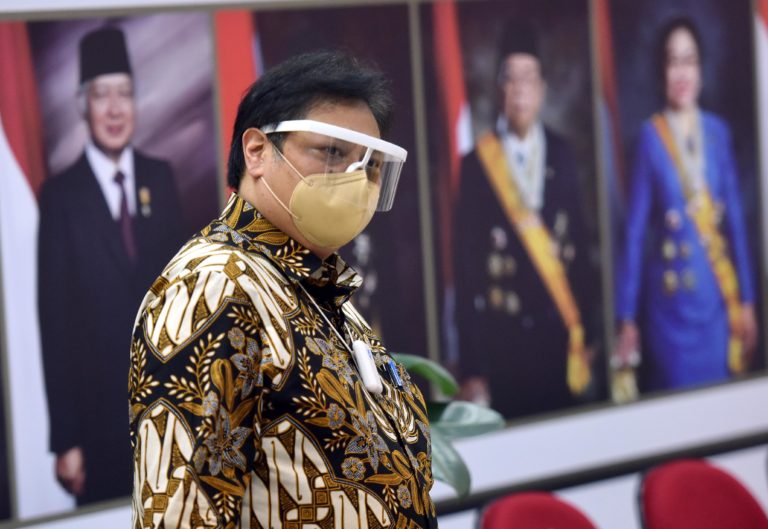RCEP Provides Opportunities for Indonesia: Coordinating Minister

Coordinating Minister for Economic Affairs Airlangga Hartarto. Photo by: PR/Rahmat
Coordinating Minister for Economic Affairs Airlangga Hartarto lauded the signing of the Regional Comprehensive Economic Partnership (RCEP) that will provide many opportunities for Indonesia.
“Indonesia must make use of the opportunities offered by the RCEP. The market for Indonesian export products will be more open and the national industry will be increasingly integrated with regional production networks and with regional and global chains. And surely it will attract more investment in the country,” Airlangga said on Friday (27/11).
The RCEP agreement has been signed by 15 countries, consisting of 10 ASEAN countries and 5 Free Trade Agreement (FTA) partner countries, namely China, Japan, South Korea, Australia and New Zealand.
Airlangga said that Indonesia initiated the RCEP when it was the Chair of ASEAN in 2011. For the past eight years, Indonesia has been leading the RCEP Negotiating Team.
The RCEP, a consolidation of the ASEAN + 1 FTA agreement, is the largest trade bloc agreement in the world, covering 30 percent of the world’s GDP (Gross Domestic Product), 27 percent of global trade, 29 percent of foreign direct investment, and 29 percent of global population.
Airlangga went on to say that after being signed, the RCEP will be implemented after at least six ASEAN member countries and three ASEAN FTA partner countries had completed the ratification process.
“Every related Government Ministry and Agency must continue to improve its capacity to increase Indonesia’s competitiveness and ensure the business sector can obtain benefits from the RCEP when it begins to be put in place,” the Coordinating Minister stated.
The implementation of the RCEP in Indonesia, Airlangga added, will be sustained by improving the business and investment climate through the Job Creation Law. The Law addresses a complex licensing problem due to numerous Government regulations. The Job Creation Law also aims to increase the competitiveness of the business sector at home and abroad.
“Improving the business and investment climate is imperative to increase Indonesia’s competitiveness and ensure the benefit of the implementation of the RCEP agreement through improving the Ease of Doing Business (EoDB) and the Global Competitiveness Index ranking,” Airlangga said. (Public Relations of Coordinating Ministry for Economic Affairs/AIT/UN) (RI/MUR)








